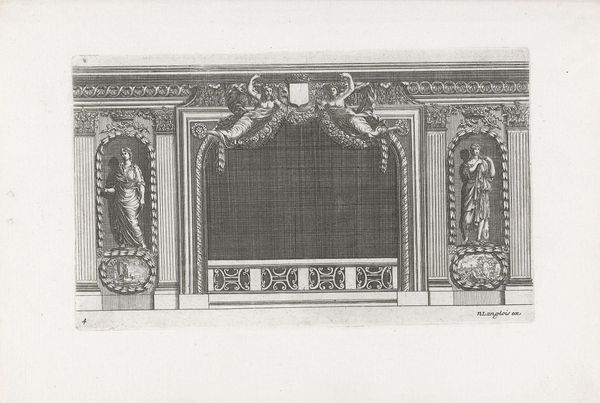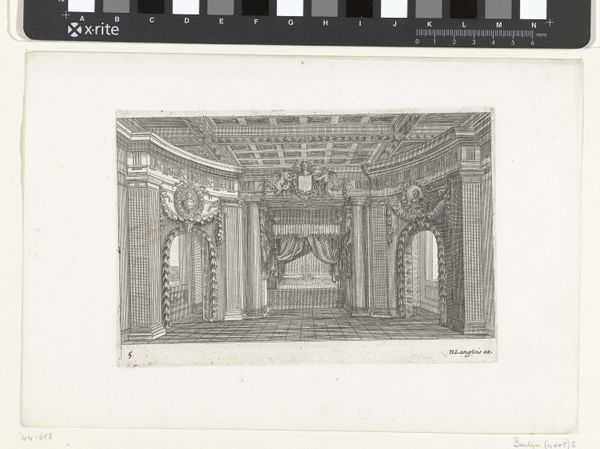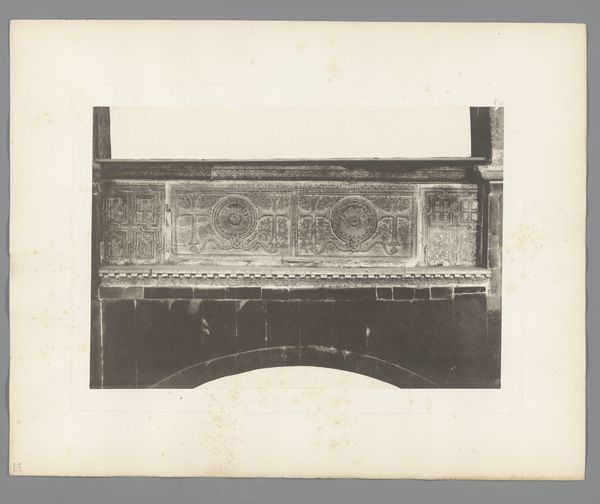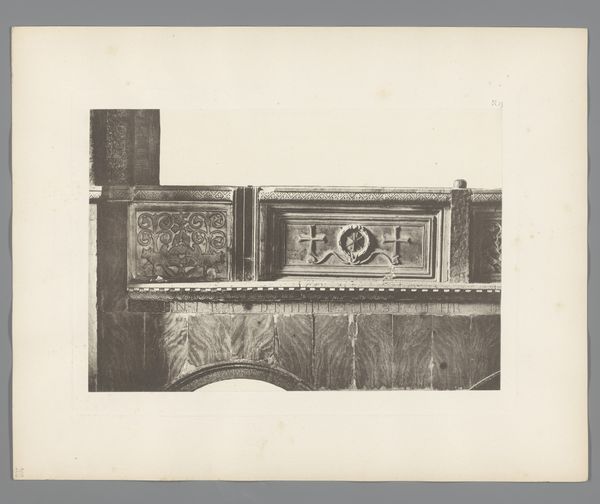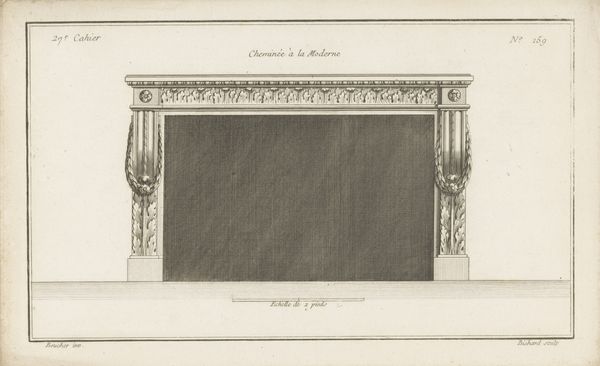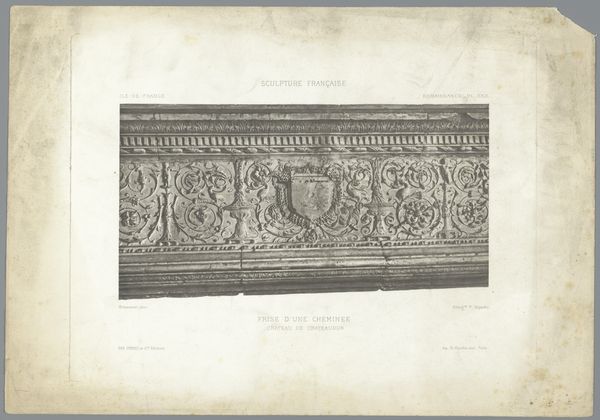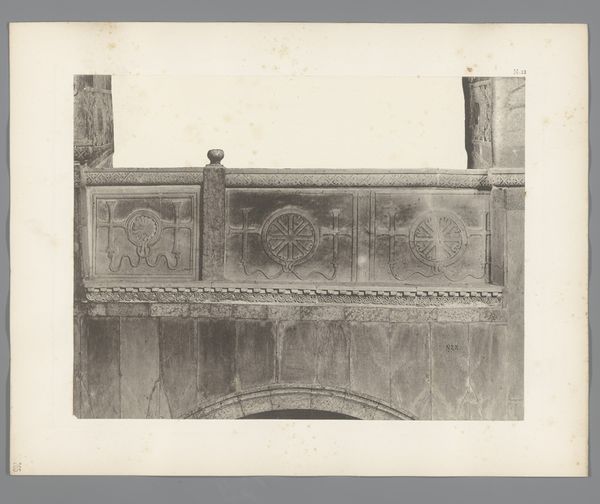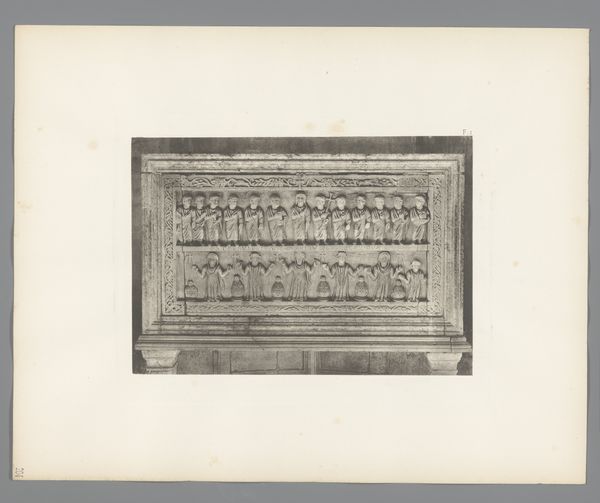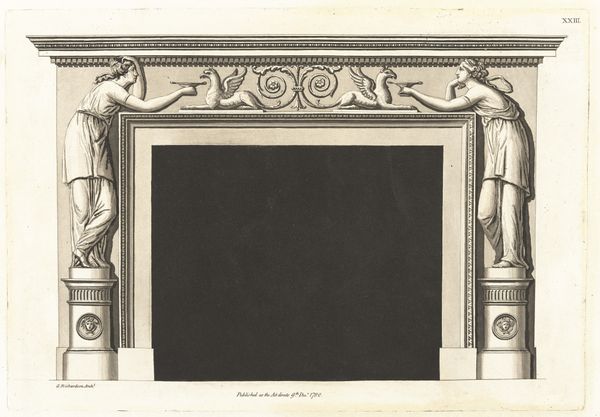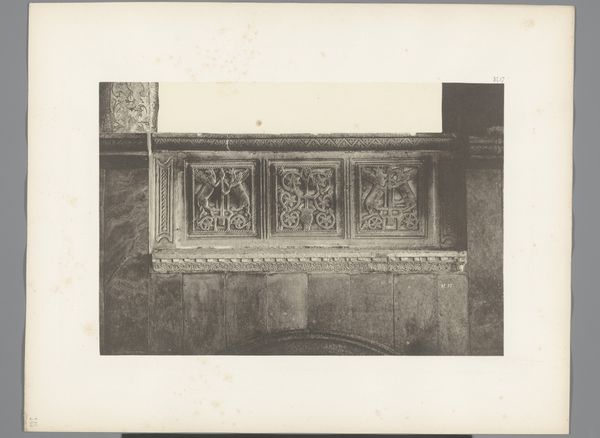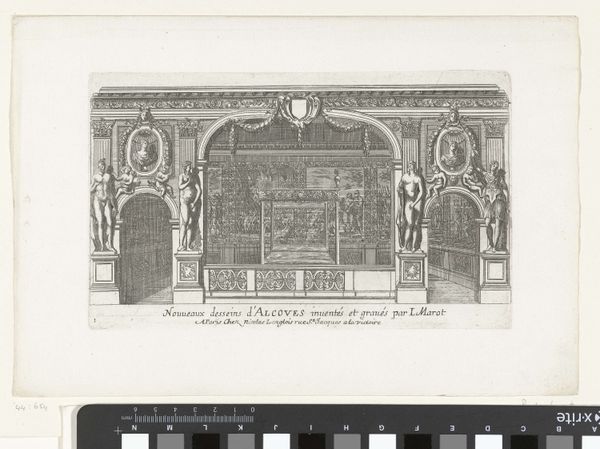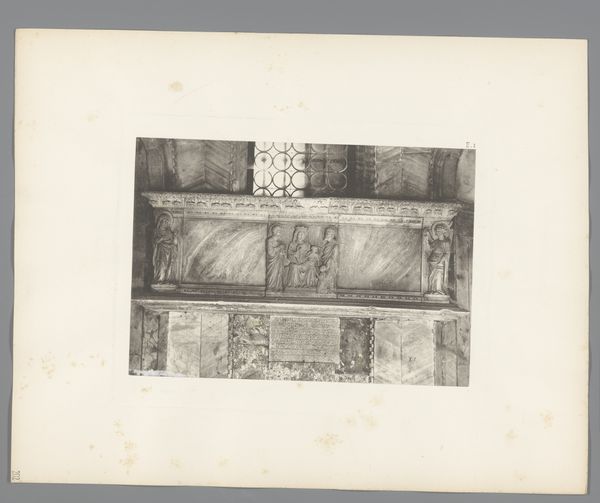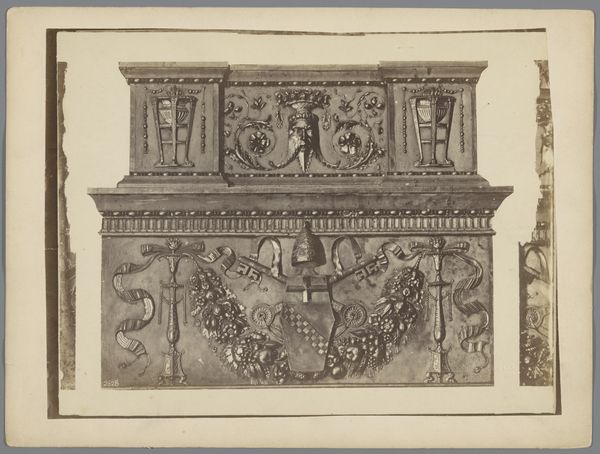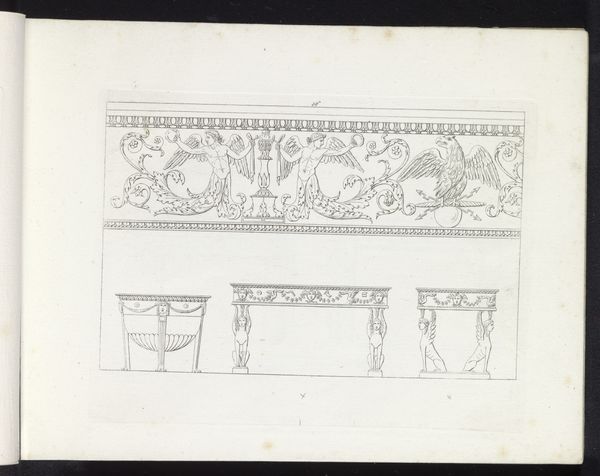
drawing, print, engraving, architecture
#
drawing
#
aged paper
#
toned paper
#
light pencil work
#
baroque
# print
#
light coloured
#
old engraving style
#
white palette
#
form
#
geometric
#
line
#
engraving
#
architecture
Dimensions: height 131 mm, width 198 mm
Copyright: Rijks Museum: Open Domain
Editor: This engraving, "Muurindeling met Ionische pilasters," likely created between 1629 and 1703 by Jean Marot, presents a formal architectural elevation. It feels very controlled, and meticulously crafted. I'm drawn to the repeated use of vertical lines. What do you see in this print? Curator: I appreciate your initial observations. Observe how the artist employs the interplay of lines to construct a rigorously geometric space, articulating depth solely through the variation in line weight and density. How would you describe the structure’s compositional balance? Editor: Well, it seems symmetrical. The pilasters and figures mirror each other on either side of a central opening. But it also feels somewhat flattened, doesn’t it? Like it's all on one plane. Curator: Precisely. Despite the suggestion of depth achieved through linear perspective in the pilasters and recessed wall plane, the composition predominantly operates on a frontal plane. The very restricted use of line creates texture within the flat plane. What effect is achieved by that limited palette? Editor: It creates a very restrained elegance, almost austere. It feels less like a depiction of a real space and more like an exploration of form and line itself. Curator: Indeed. This engraving exemplifies how form, reduced to its barest essentials, becomes the primary subject, a testament to the enduring power of line in architectural representation. Editor: I never thought about architectural drawings in terms of form versus function before. Thank you. Curator: An essential distinction that hopefully grants further insights to your studies!
Comments
No comments
Be the first to comment and join the conversation on the ultimate creative platform.
